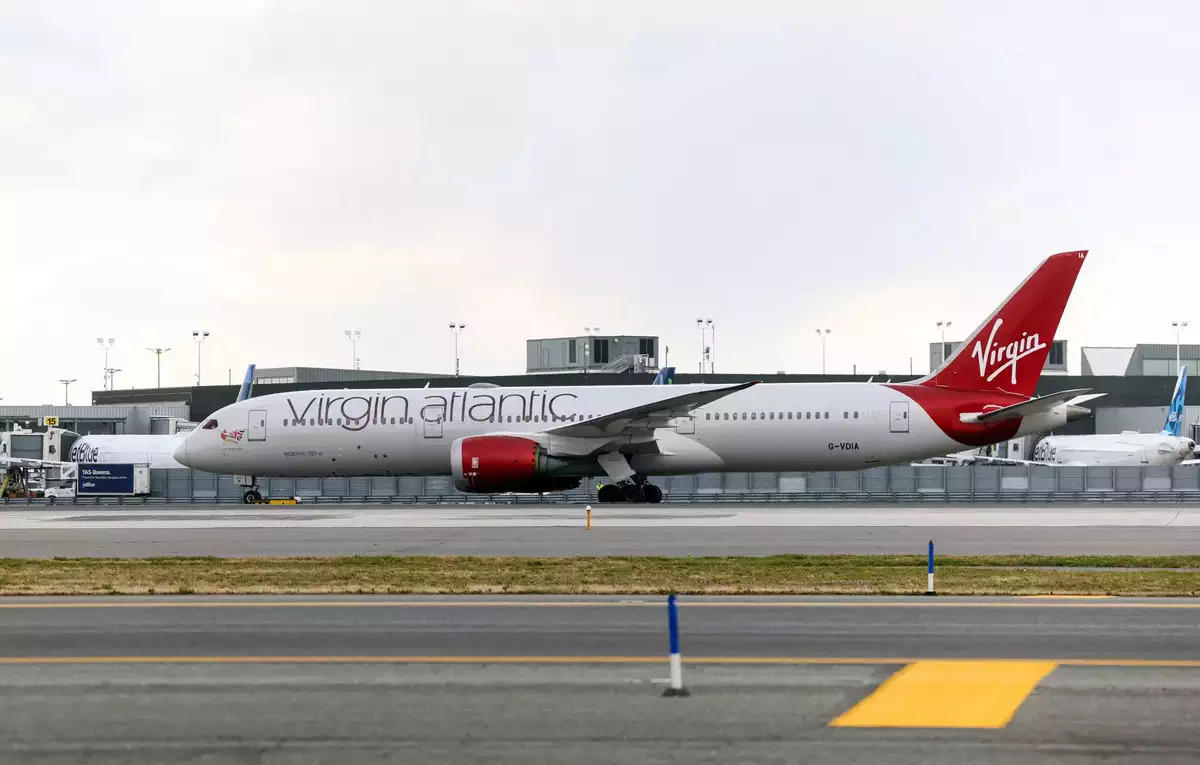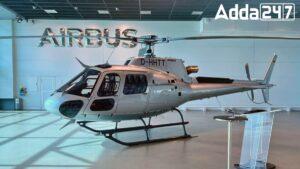In a groundbreaking move, a Virgin Atlantic passenger jet, fueled entirely by sustainable aviation fuel (SAF), completed a London-to-New York journey, showcasing the aviation industry’s commitment to low-carbon options. Despite challenges, the flight signifies a crucial step towards reducing emissions in an industry responsible for 2-3% of global carbon emissions.
Key Points
Demonstrating the Potential of Sustainable Aviation Fuel:
- Virgin Atlantic’s Boeing 787, powered by Rolls-Royce Trent 1000 engines, completed the long-haul flight using 100% SAF.
- Notably, it is the first commercial airliner to achieve such a feat, underlining the industry’s push for cleaner alternatives.
Limited Current Usage of Sustainable Aviation Fuel:
- SAF currently constitutes less than 0.1% of global jet fuel usage, primarily due to high production costs and material supply constraints.
- The industry is banking on SAF, derived from waste, to potentially reduce emissions by up to 70%.
Challenges in Large-Scale Production
- Despite the environmental benefits, the aviation sector faces challenges in scaling up SAF production.
- The cost of SAF is three to five times higher than regular jet fuel, posing economic barriers to widespread adoption.
Certification and Regulatory Approval
- Commercial engines are not yet certified for flights on more than 50% SAF, with most flights blending SAF with traditional jet fuel.
- Virgin’s successful ground tests enabled regulatory approval from the U.S. Federal Aviation Administration, Canadian, and UK authorities to fly on 100% SAF.
Flight Details
- The flight, with Virgin’s founder Richard Branson on board, departed from London’s Heathrow Airport and landed at New York’s JFK International Airport 35 minutes ahead of schedule.
- The SAF used for the flight was derived from a blend of used cooking oil, waste animal fat, and a small amount of synthetic aromatic kerosene from waste corn.
Industry Advocacy and Criticism
- The aviation industry hopes such flights will prompt governments to provide financial support for increased SAF availability.
- Environmental groups, such as Stay Grounded, criticize these efforts as “greenwashing distractions” and emphasize the urgency of reducing overall flights to combat climate change.
Future Targets and Concerns
- European airlines, including Virgin and British Airways, aim to use 10% SAF by 2030, with the industry targeting “net zero” emissions by 2050.
- Achieving the 2030 target faces challenges due to SAF’s limited volumes and high costs, with some expressing doubts about meeting EU mandates for SAF availability in 2025.
Industry Call for Government Support
- Airlines, including Virgin, call for government support to facilitate the transition to SAF, emphasizing the need for substantial investment in lower-carbon technologies.
Questions Related to Exams
Q1: Why is the aviation industry turning to SAF?
A1: SAF is seen as a crucial component in mitigating the environmental impact of aviation. Derived from sources like waste cooking oil, it has the potential to reduce emissions by up to 70%, aligning with the industry’s sustainability goals.
Q2: What challenges does the aviation industry face in adopting SAF on a larger scale? A2: The main challenges include the high cost of SAF production and the limited availability of materials needed for its manufacturing. Currently, SAF accounts for less than 0.1% of global jet fuel usage.
Q4: How does the cost of SAF compare to traditional jet fuel?
A4: SAF costs three to five times more than regular jet fuel, posing economic challenges for widespread adoption. This cost disparity highlights the need for government support and increased investment in sustainable alternatives.



 Airbus and Tata to Debut India’s First...
Airbus and Tata to Debut India’s First...
 RBI Forms Panel to Review Fee Structure ...
RBI Forms Panel to Review Fee Structure ...
 NFDC and Netflix India Collaborate to Tr...
NFDC and Netflix India Collaborate to Tr...
